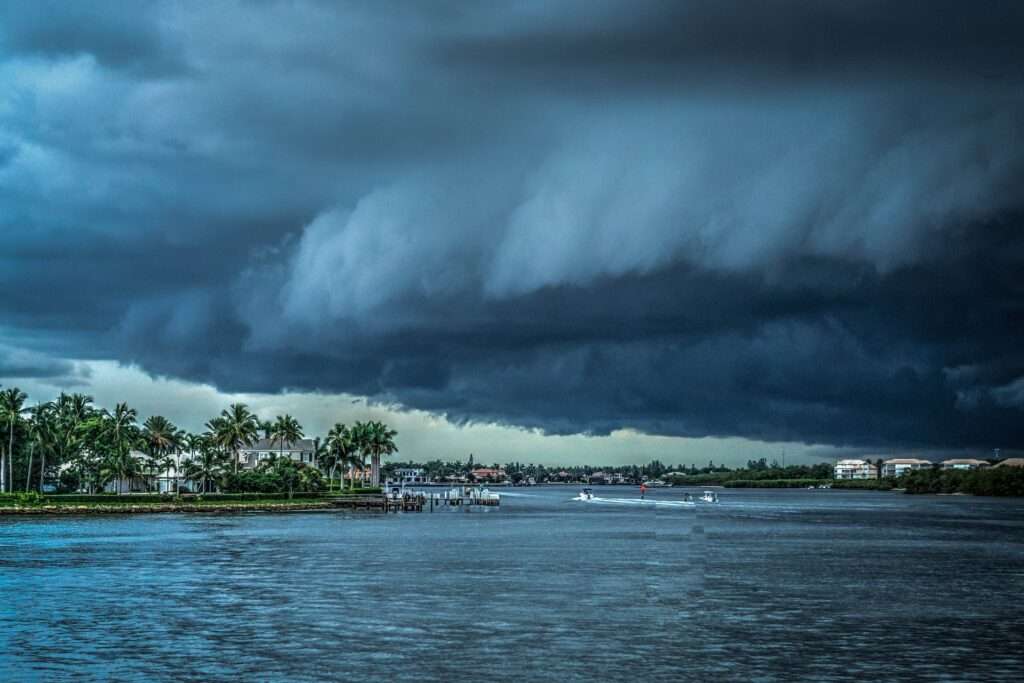
(NEW YORK) – Hurricane Lee, a powerful and large storm, is expected to make landfall in New England on Saturday, bringing heavy rain, strong winds, and coastal flooding to affected areas.
The storm is currently a Category 2 hurricane with maximum sustained winds of 100 mph. It is expected to weaken slightly as it approaches the coast, but it will still be a powerful storm with the potential to cause significant damage.
In Bermuda, Hurricane Lee is already causing heavy rain, strong winds, and coastal flooding. Power outages have been reported across the island, and some roads have been closed. The Bermuda government has issued a hurricane warning for the entire island.
Residents of New England and Atlantic Canada are being urged to monitor the latest forecasts and warnings from the National Hurricane Center and their local emergency management officials. The storm is expected to bring heavy rain, strong winds, and coastal flooding to affected areas.
“Hurricane Lee is a large and powerful storm with the potential to cause significant damage,” said Dr. Jeff Masters, a hurricane expert and co-founder of Weather Underground. “Residents of New England and Atlantic Canada should take all necessary precautions to protect themselves and their property.” Maine Gov. Janet Mills declared a state of emergency Thursday afternoon and requested federal assistance in preparation for Lee’s arrival.
Here are some of the impacts that Hurricane Lee is expected to have on coastal areas of New England and Atlantic Canada:
- Heavy rain: The storm is expected to produce up to 12 inches of rain in some areas, which could lead to flooding and mudslides.
- Strong winds: The storm is expected to produce winds of up to 60 mph, which could damage trees and power lines.
- Coastal flooding: The storm surge from Hurricane Lee could cause coastal flooding in some areas, especially along low-lying coastal areas.
Officials in New England and Atlantic Canada are urging residents to take the following precautions to prepare for Hurricane Lee:
- Secure loose objects around your home and yard.
- Make a plan for where you will go and what you will do if you need to evacuate.
- Stock up on food, water, and other essential supplies.
- Monitor the latest forecasts and warnings from the National Hurricane Center and your local emergency management officials.
Residents of coastal areas should also be aware of the potential for rip currents and other dangerous marine conditions. If you are going to be near the coast, be sure to check the latest marine forecast and heed all warnings.
Quote from expert:
“The storm surge from Hurricane Lee could cause coastal flooding in some areas, especially along low-lying coastal areas,” said David Simard, a meteorologist with the National Weather Service in Boston. “We urge residents of New England and Atlantic Canada to monitor the latest forecasts and warnings from the National Hurricane Center and their local emergency management officials.”
Call to action:
Residents of New England and Atlantic Canada should:
- Monitor the latest forecasts and warnings from the National Hurricane Center and their local emergency management officials.
- Make a plan for where you will go and what you will do if you need to evacuate.
- Stock up on food, water, and other essential supplies.
- Secure loose objects around your home and yard.
- Be aware of the potential for rip currents and other dangerous marine conditions.
By taking these precautions, you can help protect yourself and your family from the potential impacts of Hurricane Lee.
READ ALSO: